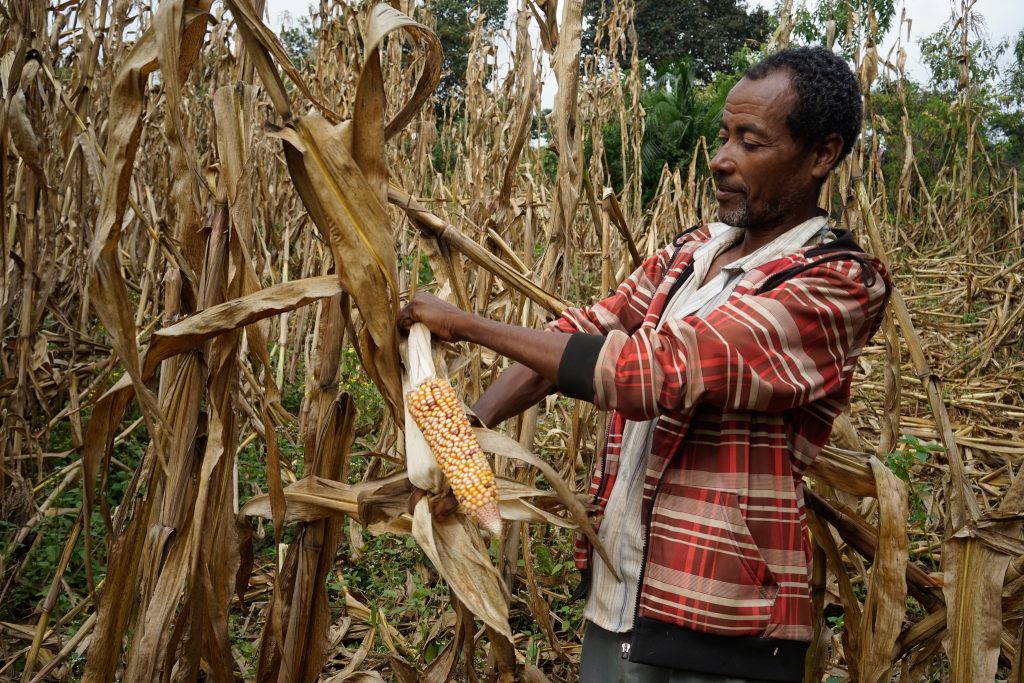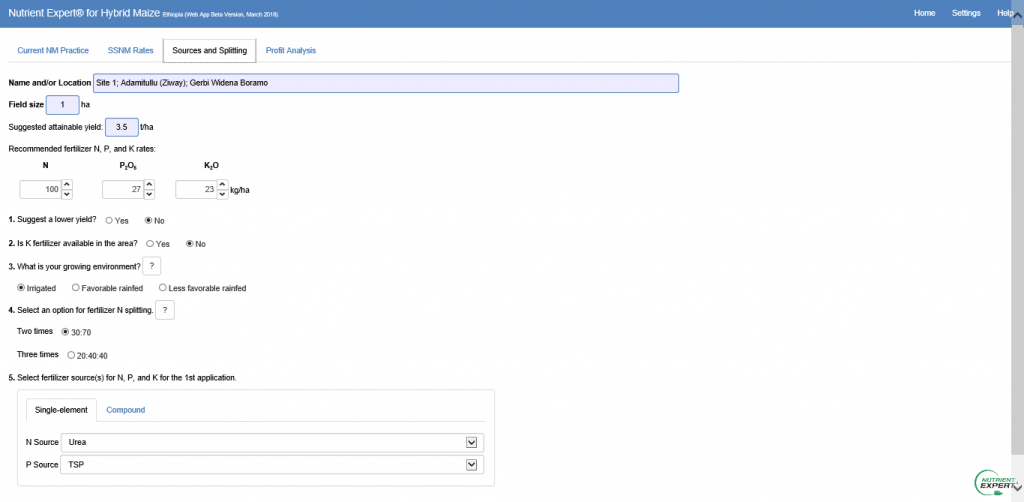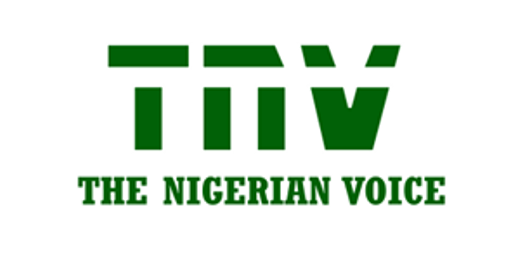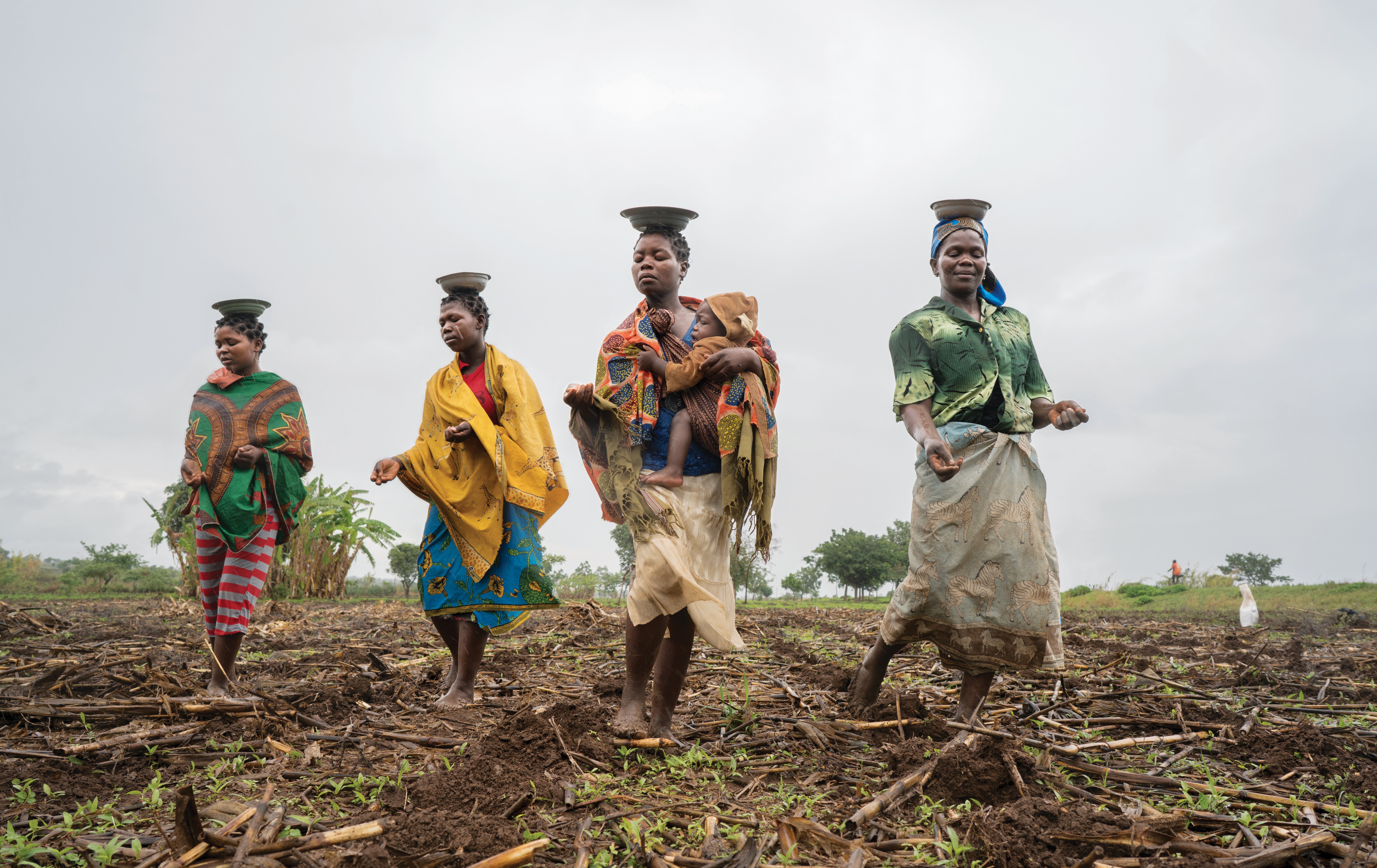
Ethiopia is Africa’s third largest producer of maize, after Nigeria and South Africa. Although the country produces around 6.5 million tons annually, the national average maize yield is relatively low at 3.5 tons compared to the attainable yield of 8.5 tons. This high yield gap — the difference between attainable and actual yields — can be attributed to a number of factors, including crop varieties used, farm management practices, and plant density.
The Taking Maize Agronomy to Scale (TAMASA) project aims to narrow maize yield gaps in Ethiopia, Nigeria and Tanzania through the development and scaling out of decision-support tools, which provide site-specific recommendations based on information held in crop and soil databases collected from each country. These help farmers to make decisions based on more accurate variety and fertilizer recommendations, and can contribute to improving maize production and productivity.
One such tool is Nutrient Expert, a free, interactive computer-based application. It can rapidly provide nutrient recommendations for individual farmers’ fields in the absence of soil-testing data. The tool was developed by the International Plant Nutrition Institute in collaboration with the International Maize and Wheat Improvement Center (CIMMYT), the International Institute of Tropical Agriculture (IITA), and research and extension service providers.

In Ethiopia, regional fertilizer recommendations are widely used, but soil fertility management practices can vary greatly from village to village and even between individual farmers. This can make it difficult for farmers or extension agents to receive accurate information tailored specifically to their needs. Nutrient Expert fills this gap by incorporating information on available fertilizer blends and giving customized recommendations for individual fields or larger areas, using information on current farmer practices, field history and local conditions. It can also provide advice on improved crop management practices such as planting density and weeding, thereby helping farmers to maximize net returns on their investment in fertilizer.
Data calibration was based on the results of 700 multi-location nutrient omission trials conducted in major maize production areas in Ethiopia, Nigeria and Tanzania. These trials were designed as a diagnostic tool to establish which macro-nutrients are limiting maize growth and yield, and determine other possible constraints.
In Ethiopia, CIMMYT scientists working for the TAMASA project conducted nutrient omission trials on 88 farmer fields in Jimma, Bako and the Central Rift Valley in 2015 to produce a version of Nutrient Expert suitable for the country. Researchers trialed the app on six maize-belt districts in Oromia the following year, in which Nutrient Expert recommendations were compared with soil-test based and regional ones.
Researchers found that though the app recommended lower amounts of phosphorus and potassium fertilizer, overall maize yields were comparable to those in other test sites. In Ethiopia, this reduction in the use of NPK fertilizer resulted in an investment saving of roughly 80 dollars per hectare.
Results from Nutrient Expert trials in Ethiopia, Nigeria and Tanzania showed improved yields, fertilizer-use efficiency and increased profits, and the app has since been successfully adapted for use in developing fertilizer recommendations that address a wide variety of soil and climatic conditions in each of the target countries.
The World Bank’s 2016 Digital Dividends report states that we are currently “in the midst of the greatest information and communications revolution in human history.” This shifting digital landscape has significant implications for the ways in which stakeholders in the agricultural sector generate, access and use data. Amidst Africa’s burgeoning technology scene, CIMMYT’s TAMASA project demonstrates the transformative power of harnessing ICTs for agricultural development.
Learn more about different versions of Nutrient Expert and download the free software here.
TAMASA is a five-year project (2014-2019) funded by the Bill & Melinda Gates Foundation, seeking to improve productivity and profitability for small-scale maize farmers in Ethiopia, Nigeria and Tanzania. Read more about the project here.
 Nutrition, health and food security
Nutrition, health and food security 


